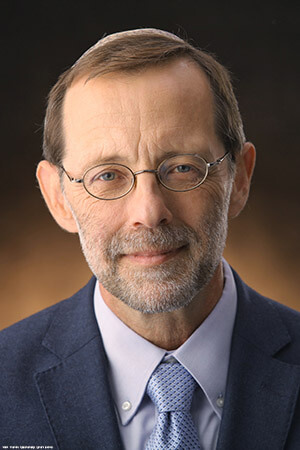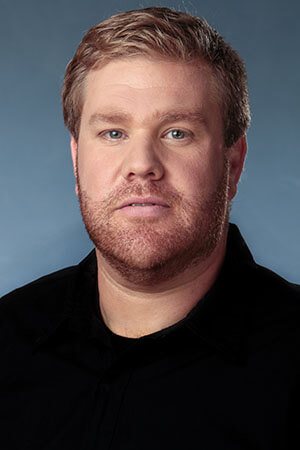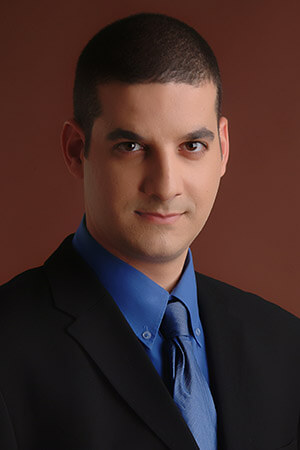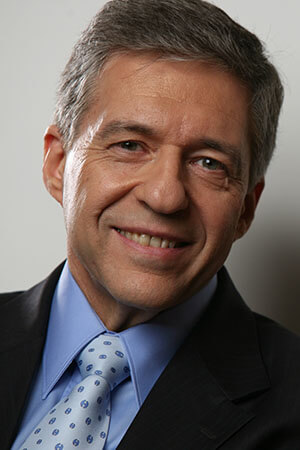Moshe Feiglin

resume
“A unique figure in the political arena,” Yaron London sounded the alarm about Moshe Feiglin (Yediot Aharonot 2012). “Straight as an arrow, cast of tough metal, truthful inside and out…Oust corrupt politicians, but remember that greater danger lurks in the form of charismatic, lean idealists…”What is so frightening and fascinating, admirable yet formidable about this man? Moshe Feiglin is a riddle. He was born in Haifa, Israel in 1962 to a family that immigrated to Israel in the first wave of aliyah (late 1800’s). The Feiglin family boasts all the extremes of Israeli society. Perhaps that is the reason why Moshe Feiglin is the ultimate liberal yet the most resolute conservative, the most Jewish yet the most Israeli does not identify as religious and certainly not as secular – not as a rightist nor a leftist. Somehow, Moshe Feiglin –father of five and grandfather of nine – manages to create a new language, to break all the old dogmas and construct a coherent domain that suits him. But not only for himself… His book, “To Be a Free Jew – The State of Israel: An Operating Manual” is the political platform of the party that he founded, the Zehut (Identity) party. In two months, the book became a best-seller, selling tens of thousands of copies and ranking fourth of the ten top best-sellers in Israel for 2019. Feiglin fascinates his audience, opening their minds so that they, too, can think out-of-the-box to consider solutions for Israel’s problems. The “bad boy” of religious Zionism, the combat officer, the man who established the first rappelling company in Israel in the summer of 1995, left the business and blocked all the roads in the country in protest over the Oslo Accords, the member of the 19th Knesset, Deputy Speaker of the Knesset and member of the Knesset’s Security and Foreign Affairs Committee, the sought-after interviewee and the intellectual who wrote three books and thousands of articles – has something important to tell you. You can agree with him and you can disagree. You can accept what he says or you can be vehemently opposed… But one thing is beyond a doubt: On almost every issue, Moshe Feiglin introduces an original, compelling approach. And somehow, he makes it all come together in perfect coherence. “When I ask 119 Knesset members a question, I already know their answers,” said a senior political correspondent. “The only MK that renders me clueless as to what he will answer, but is sure to give me food for thought – is Moshe Feiglin.”
lectures
- Religious Zionism
- Diplomacy: How did Tel Aviv Become Captive to Gaza?
- The Economic Plan
- Religion and State
- Israeli Society and its Political System
- Democracy, Law and Limits of Obedience
- Security and Foreign Affairs
How did the Religious Zionists, Zionism’s new avant-garde, the camp that was supposed to replace the tired kibbutz society – morph from an asset to a burden? Why are there more Religious Zionist political parties today than Religious Zionist MKs? What cast the grand vision of the Nation of Israel, Torah and the Land of Israel to the bottom of the political barrel?
Do they know over at the Chief of Staff’s HQ what to do if missiles hit a kindergarten? Clue: They don’t…No alternative strategy has been planned to replace the erroneous and failed Oslo structure. Thus, the IDF’s response to missiles (shelling sand dunes) is meant to serve strictly domestic goals. A fascinating lecture that digs deep into the root of the problem and builds the solution step-by-step, providing answers for all the difficult questions.
Israel is a wasted economic miracle. Its GNP has grown ten times over in the past 30 years. The long line of Israelis applying for a European passport, however, is getting even longer. Israel’s young people work overtime to fund the lavish lives of the generation of insiders and cronies who were here before them. The chance for a young couple to buy an apartment and attain a life without servitude and financial insecurity is almost non-existent. This lecture proposes practical solutions for opening Israel’s economy so that our children will remain in Israel and young Diaspora Jews will make aliyah to Israel – first and foremost to make money!
The State of Israel was established on the basis of two foundational, conflicting ethos: The Jewish ethos and the Israeli ethos. The believer and the scoffer. Zionism attempted to detach nationality from religion, exactly as other modern nation-states had done. Perhaps it could not have been otherwise, for religion in its present state is the product of the destruction of the Temple and the long exile. Religion had managed to wondrously preserve our identity. In the eyes of many, however, religion became an obstacle when, after 2000 years, we returned to Israel to renew our sovereign culture in our Land. Conversely, without the Jewish ethos, Zionism did not have foot soldiers. Even the refugees from the pogrom in Kishinev rejected Herzl’s Uganda proposal. They were willing to uproot themselves for the Holy Land alone. Ultimately, the deep force that motivated the revival was Jewish sentiment combined with Zionist rebelliousness. These two opposites cannot exist alone, yet do not manage to co-exist. Perhaps for the first time since the beginning of Zionism, Moshe Feiglin presents an approach that creates a policy of synergy between the two worldviews – instead of another destructive attempt to decisively defeat one or the other.
The paralyzing stalemate that has brought Israel three elections in one year is not merely technical or coincidental. It will not be resolved in essence by changing the voting method, either. The deep debate raging in Israeli society since the first days of Zionism, the attempted mutual coercion between the Jew and the Israeli has reached a debilitating impasse. The political expression of mutual neutralization is just the tip of the iceberg of a gridlock of essence. The plane upon which the debate is taking place is not the plane of Right and Left, but rather, the plane of identity: Jewish or Israeli. Thus, when Lieberman switched places on the identity-plane, taking his rightist voters who identify more as Israelis and less as Jews with him, the rules of the game changed and the stalemate was born. In the first of the three elections, the Zehut party made the same move. It abandoned the Right/Left discourse and placed itself on the identity-plane. Instead of dividing the nation, however, it strove to unite it. When the party failed, the stage was left to Lieberman, who uses the identity-plane as a dividing factor.
“Good men must not obey the laws too well.” (Ralph Waldo Emerson). How is a responsible citizen supposed to conduct himself in the face of the insufferable evil of an elected government? What are the limits of obedience? And what is the difference between disobedience and anarchy? Moshe Feiglin was the first to implement non-violent civil disobedience in Israel when, in August 1995, he organized a massive blocking of Israel’s major highways (one hundred major arteries) by 100,000 protestors who had tied their hands as a sign of non-violence and wore t-shirts on which the slogan, “I am willing to be arrested for my homeland” was printed. In the decades that have passed since then, Moshe Feiglin has remained faithful to his view of the place of the responsible citizen in the face of the state, supporting leftists who refused to serve in the army – when they were willing to pay the full price for their disobedience. Moshe Feiglin understands the deep meaning of democracy as a democracy of essence and not simply as a democracy of form. In this lecture, he explains the difference between the two and how to release Israel from the tyranny of the majority, on the one hand – and from the rule of bureaucrats, on the other.
“Israel does not have a foreign policy, just domestic policy.” (Henry Kissinger) Two months after the start of Operation Protective Edge, Deputy Chief of Staff Gadi Eizenkot appeared before the Knesset Foreign Affairs and Security Committee. Eizenkot presented the committee members with a list of the tunnels that had been discovered in Gaza and the number of missiles that had been destroyed – creating confusion among the committee members. If everything is so good, how is it that in Tel Aviv the people are beginning to get used to what until now has been the reality only in Sderot – running for cover as the air raid sirens blare and the rockets are intercepted? If the IDF has been so successful, why isn’t an end to this madness in sight? “A tunnel has never chased me,” MK Moshe Feiglin said to the Deputy Chief of Staff. “The amount of missiles that have been destroyed doesn’t interest me, either. I will be grateful if you can answer just one simple question for me…Who is the enemy? The Hamas? Or the tunnel?” The Deputy Chief of Staff paled, embarked on a confused speech and hurried out of the committee chamber. Sometime later, the IDF detonated a terror tunnel on the Gaza border, mistakenly killing several terror chiefs inside. The IDF apologized for killing them, and in a live televised interview, Feiglin debated the apology with the representative of the Defense system, retired Brigadier General Giora Inbar. Feiglin re-enacted the same scene that had taken place with the Deputy Chief of Staff behind closed doors. “Who is the enemy?” Feiglin asked Inbar. “The tunnel,” Inbar stammered, exposing the weakness of the system that had lost its identity, its ability to differentiate between its enemies and allies and of course, its inability to win. How do we restore the ability to win to the IDF? It is difficult but possible, Moshe Feiglin explains in this fascinating lecture.
Why should you choose Moshe Feiglin
Moshe Feiglin is not an ordinary lecturer. Actually, he is not a lecturer at all. Feiglin discusses all of Israel’s core issues and – interacting with the audience – builds a totally new understanding of Israeli society, the State of Israel and its destiny. Whether the focus is on foreign affairs and security or whether it is on the economy, society, religion and state, Judaism, liberty, democracy, the limits of obedience, diplomacy, Gaza, the Land of Israel and much more – Moshe Feiglin will analyze the depth and breadth of the issue, applying a comprehensive grasp of the situation, forged by decades of analysis. The thread that weaves all of Moshe Feiglin’s ideas together is the question of identity. Who are we? Jews? Israelis? How do we translate our Jewish identity into policies that serve modern Israeli society, which knows where it came from, but does not understand where to go and how to manage current challenges? Moshe Feiglin says that he has found the formula that connects these concepts – the formula that will allow Israeli society to free itself of its paralysis and move ahead in every arena. Many attempts to imitate him and co-opt parts of his platform. Hear him for yourself and discover his integrated, compelling vision.
more





